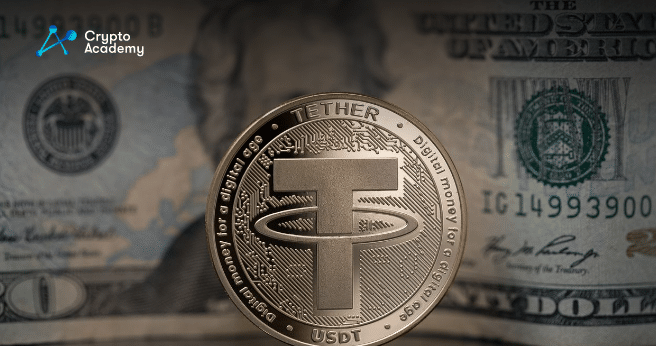Tether reports Q1 2023 profits of $1.48 billion amid controversies and plans to invest 15% of profits in Bitcoin.
Tether has reported an astounding Q1 2023 net profit of $1.48 billion, marking a momentous period for the world’s largest stablecoin company. This surge represents a $1.48 billion increase from the same quarter last year, pushing Tether’s reserves to an all-time high of $2.44 billion. The company attributes this success to strategic financial management, with most of its reserves in cash and equivalents, notably U.S. Treasury Bills. A mere 1.8% of Tether’s reserves reside in Bitcoin.
Despite commissioning BDO Italia to prepare the Q1 assurance report, the company is yet to undergo an independent audit. Nonetheless, Tether’s Chief Technology Officer, Paolo Ardoino, enthusiastically acknowledges the company’s performance in the first quarter of 2023. The company is well-known for minting USDT, the world’s third-largest cryptocurrency after Bitcoin and Ethereum and the largest stablecoin, backed by stable assets like the U.S. dollar.
USDT: A Global Trading Giant
USDT currently boasts a market cap of $82.5 billion and is the most traded cryptocurrency with a 24-hour trading volume of $16.5 billion. Traders across the globe use USDT for swift entry and exit from trades, bypassing traditional banks or fiat currency. The strategy has gained significant traction in regions where the U.S. dollar is restricted or unavailable and in decentralized finance (DeFi) sectors that aim to eliminate the need for banks.
Yet, Tether has faced criticism due to perceived insufficient transparency regarding the U.S. dollar reserves backing USDT. As recently as March, allegations surfaced that companies supporting USDT used counterfeit documents and shell companies to gain access to the banking system. Tether firmly dismissed these claims as inaccurate and misleading.
Tether’s Previous Controversies
In 2021, following a two-year investigation by the New York Attorney General, Tether agreed to cease operations in New York. The investigation concluded that the company had made false statements about its stablecoin’s backing. Despite these setbacks, Tether’s recent financial success and strong market performance indicate a promising future for the stablecoin company.
Investing Profits in Bitcoin
In a bid to further strengthen its reserves, Tether plans to allocate up to 15% of its net operating profits of Q1 to purchase Bitcoin, the world’s largest cryptocurrency. This move is part of the company’s new investment strategy, with Bitcoin’s resilience, limited supply, decentralized nature, and widespread adoption making it a favored choice among both institutional and retail investors.
Tether’s Investment Strategy and Reserve Management
Tether already holds around $1.5 billion worth of Bitcoin in its reserves. The new investment initiative will be based on realized profits, excluding unrealized gains from portfolio price increases. According to Ardoino, Tether has accumulated $2.5 billion in excess reserves on top of the 100% reserves backing issued tokens. These excess reserves come from interest on U.S. Treasury bills and other investments, including gold.
Criticisms and Concerns
Despite Tether’s soaring profits, critics express doubts about the company’s reserve claims. Former SEC enforcement attorney John Reed Stark recently questioned the validity of the company’s regular unaudited attestations. Concerns persist over Tether’s disclosure regarding the U.S. dollar reserves that supposedly back USDT.
Stark’s Accusations
John Reed Stark, a former U.S. Securities and Exchange Commission (SEC) lawyer, has voiced serious concerns about Tether. He accuses the company of counterfeiting, owing to its lack of transparency and regulatory oversight, including audits, inspections, and insurance. Stark criticizes the company’s use of attestation reports as evidence of financial stability, calling the practice misleading and unethical.
Furthermore, Stark disputes Tether’s claim of equivalence to the U.S. dollar, labeling it a counterfeiter. He suggests that Tether attempts to mirror the U.S. dollar without possessing the currency’s essential characteristics. These allegations underscore broader concerns in the crypto industry about regulation, oversight, and the intrinsic value of digital currencies. Despite these criticisms, Tether’s recent performance indicates strong investor confidence in the company’s future.

